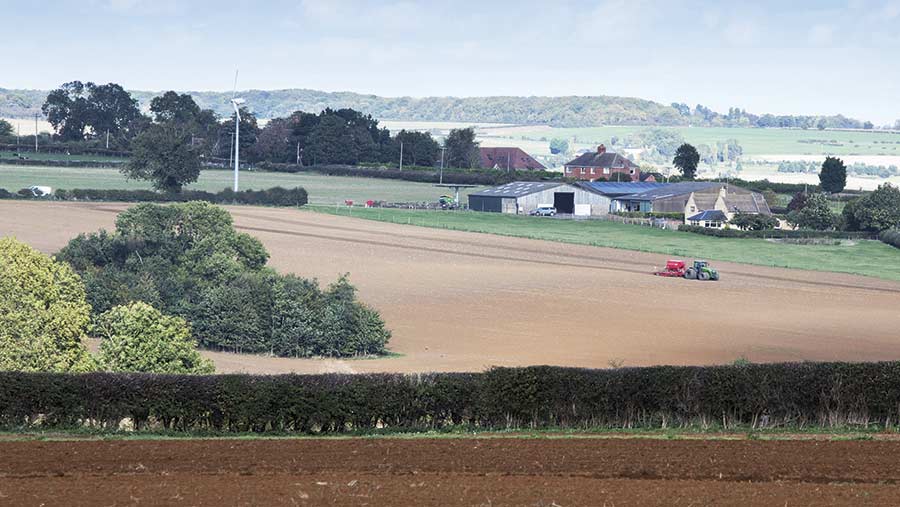Outlook 2018: Farm policy will be dictated by Brexit deals
 © Tim Scrivener
© Tim Scrivener The vote to leave the EU means the UK will be able to draw up its own agricultural policy and set the rates for any support that comes with it.
After Brexit, funding for agricultural support will have to compete with other areas such as the NHS, education and security, says Andersons Research consultant Caroline Ingamells.
“Over the medium-term the budget for a Domestic Agricultural Policy (DAP) is likely to reduce. A cut of 50%, compared to current levels, phased in by 2025, is not inconceivable.
See also: Collaborate to build resilient farm businesses
Summary
- Agricultural support could face 50% cut from current levels by 2025
- Universal area-based payments unlikely to disappear soon but their long-term future looks uncertain
- EU is stepping up free-trade negotiations, which UK must replicate to retain existing trade advantages post Brexit. The more deals done, the bigger the task
Until the UK leaves the EU, UK farmers will continue to receive support through the CAP, says Mrs Ingamells. Government has also announced the agricultural sector will receive the same level of funding until “the end of the current Parliament”. This is scheduled to be 2022, but could be earlier.
Defra has not yet provided any details of what a future UK agricultural policy will look like, although a focus on the environment, hill areas, competitiveness and risk management tools seems to feature at the forefront of its plans.
“In our view, whilst a universal, area-based, ‘income support’ scheme (currently the BPS) will not disappear overnight, there seems little long-term future for this type of subsidy in the English lowlands,” says Mrs Ingamells.
“This is despite concerted lobbying efforts from parts of the farming industry to retain a BPS-like payment. From our viewpoint, it seems a waste of effort trying to preserve existing (some would say failed) systems, rather than looking to create something much better.”
The EU hopes to start talks on free trade deals with both New Zealand and Australia, while talks under way with the Mercosur block and Mexico could be concluded by the end of 2017.
This could have a big impact on UK agriculture, says Mrs Ingamells. “Any deals negotiated by the EU will need to be replicated by the UK on Brexit to retain our existing trade advantages. The more deals the EU does, the bigger that task becomes.”
Andersons Outlook
The above is based on Andersons Outlook 2018. Copies of the full publication can be downloaded from www.andersons.co.uk by clicking on ‘Publications and Events’ or by requesting a printed copy on 01664 503200.
Andersons is running a series of seminars in the spring, looking at the prospects for UK agriculture in greater detail. For more information, please go to www.theandersonscentre.co.uk/seminars.
2 March – RAF Club, Piccadilly, London
6 March – Harper Adams University, Newport, Shropshire
7 March – Castle Green Hotel, Kendal, Cumbria
8 March – Carfraemill Lodge Hotel, Lauder, Berwickshire
9 March – York Racecourse, York, North Yorkshire
13 March – Yew Lodge Hotel, Kegworth Leicestershire
14 March – Perth Racecourse, Perth
16 March – Newmarket Racecourse (Rowley Mile), Newmarket, Suffolk
20 March – Royal Agricultural University, Cirencester, Gloucestershire
21 March – Exeter Racecourse, Exeter, Devon
22 March – Salisbury Racecourse, Salisbury, Wiltshire
23 March – East of England Showground, Peterborough, Cambridgeshire
